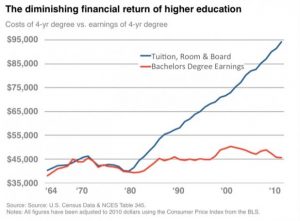I came into the University of Richmond knowing my exact career path and that I would major in Global Studies with a minor in Healthcare, hoping to one day work for a public health non-profit in some far-off corner of the world. Plans changed, a lot, and now I’m doubling in Psychology and Leadership with a minor in Art History, and honestly could go a million directions in my life. That is why I chose to add the Leadership major, because (although nobody seems to understand its purpose) it creates an intellectual base that allows you to pursue virtually any career path. The classes that I have taken at Jepson have taught me the foundational aspects of life, teaching me to question authority while also enhancing my abilities to express my own opinions as well as others. These skills do not fit into the application of one specific job like a pre-med track does, but they can be applied to any career path that I choose. By adding the hard skills of psychology and whatever else I choose to study as a graduate student, I can find success in HR, psychological research, education, or really any other field so long as I put the effort in. Yes, all of the above has come out of trying to explain my major choices to pessimistic and dubious audiences, (especially my grandma, who has heard this spiel twice and still doesn’t understand) but I truly believe it and cannot wait to see where it takes me in life.
Additionally, I really resonated with the tea-cup analogy used by Dr. Bezio and the similar messages about the potential impacts of unity in the first “Impossible” essay that was assigned for class today. I feel like a great example of this in action is sustainability, which seems unhelpful on an individual scale but as more people do it, it becomes incredibly impactful. In high school, one of my assignments was to create as little waste as possible for a week, hoping to cut down on the amount of garbage we had to take to the dump at the end. By myself, almost nothing changed, but as my sisters and parents joined in, we were able to significantly reduce the amount of garbage we produced as a household. I think a lot of issues would have similar results in this experiment, especially if they were done on a larger scale.

